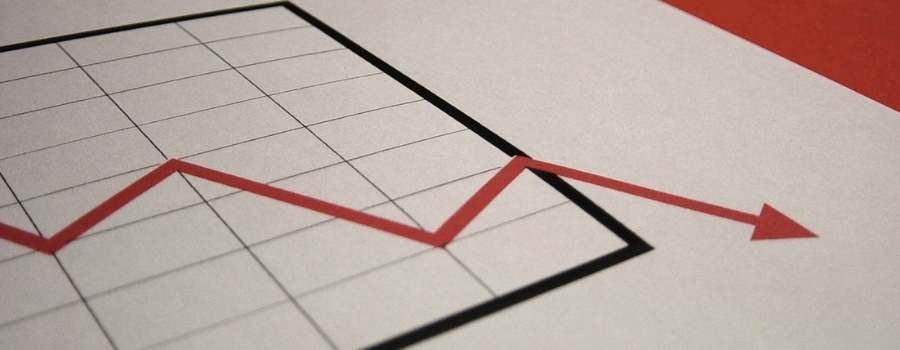
It seems like every day, we are hearing about new advances in solar technology. Solar energy is becoming more and more popular, and it’s easy to see why. It’s a sustainable source of energy that doesn’t produce any harmful emissions.
However, one thing that has been holding solar back is its low-efficiency rate. I started doing a little digging into the reasons for this low efficiency and possible ways that you can increase it in your own home!
Why Aren’t Solar Panels More Efficient?
In general, solar panels are limited to maximum efficiency of around 20% because the solar spectrum emits light with a wide range of energies. Some of those photons will have greater energy than the semiconductor’s bandgap and will be absorbed, creating an electron-hole pair.
Solar panels are only about 20% efficient, compared to the 40-50% efficiency of traditional fuels like coal and natural gas. So why is solar panel efficiency so low?
There are a few reasons for this with the main one being what I mentioned above…digging into the topic gets pretty heady but in short, it comes down to the wide light spectrum that the sun produces and solar cells not being able to utilize all of them.
There are other reasons too, which I’ll detail below that I think will make more sense from a consumer perspective…these things at least are already solvable or are closer to being solved.
- Inefficient Silicon
- Uneven Sunlight
- Not Always Installed Efficiently
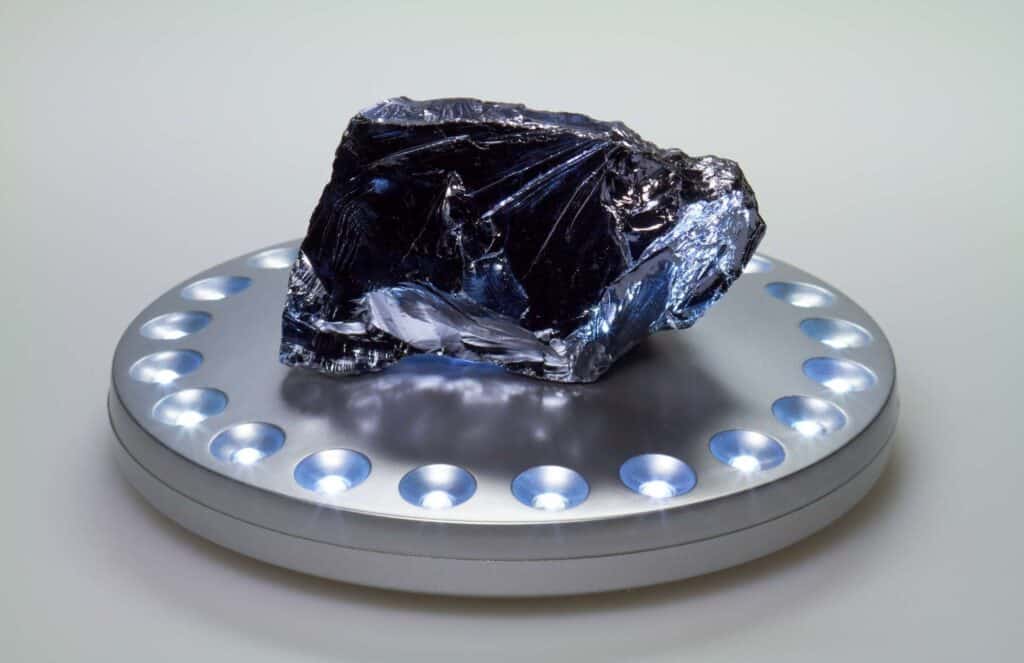
Inefficient Silicon
The first reason has to do with the materials used in solar cells. Solar cells are made up of silicon, which is a very inefficient material. In order to make up for this, solar cells are made in very large sizes, which drives down the overall efficiency of the panel.
Uneven Sunlight
The second reason is that sunlight is not always evenly distributed. Solar panels work best when they are facing the sun, but during cloudy days or at night, they will not be as effective.
Not Always Installed Efficiently
The third reason has to do with the way that solar panels are installed. Often, they are not installed in a way that takes advantage of all the sunlight that is available. In order to maximize efficiency, they should be tilted towards the sun and spaced out evenly.
Why Haven’t We Improved Solar Panel Efficiency?
Unfortunately, improving solar panel efficiency is actually quite difficult. Among many factors, the two biggest ones are that it is difficult to improve solar cell technology and it is very expensive.
Additionally, solar technology is constantly changing, and it can be difficult to keep up with the latest advancements. Many companies are focused on developing new solar cells that are more efficient and less expensive.
So while solar panel efficiency is low right now, there is hope that it will continue to improve in the future.
With current solar cell technology, a big sticking point is silicon. In order to increase efficiency, we would need to find a new material that is more efficient than silicon.
However, there are some things you can do to improve the efficiency of your solar panels:
- Make sure your solar panels are facing the sun as much as possible.
- Tilt your solar panels towards the sun to maximize exposure.
- Space out your solar panels evenly to make sure they are getting the most sunlight.
- Invest in a high efficiency solar panel. These panels have been designed to work better in low light conditions and can increase the overall efficiency of your system.
Why Are Some Solar Panels More Efficient Than Others?
Generally, the differences in the quality of silicon used in solar cells explain the variation in efficiency among solar panels. Additionally, if panels are not tilted or positioned correctly, they will be unable to absorb as much energy as they could.
Your average solar panel today has an efficiency rating that sits somewhere around 20%…give or take. While that might look a little underwhelming on the surface, it’s important to understand just how much more efficient today’s solar panels are compared to those that were built even just a decade or two ago.
The solar panel industry has seen efficiencies increase by over 80% in the last 15 years, in large part thanks to new solar technologies, new panel types, and even new ways of building multi-junction cells that gather unique frequencies of light that weren’t being collected in the past.
At the end of the day, solar panels are only going to get more and more efficient as time goes on.
Every year brings new breakthroughs, new advances, and new solar technologies. It’s important to remember that we are only just barely beginning to scratch the surface of what solar technology could be capable of.
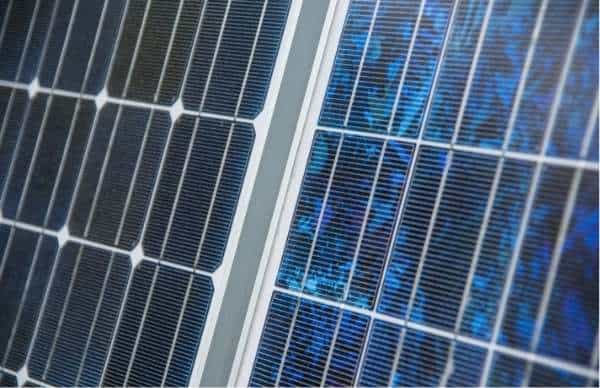
Panel Type Impacts Efficiency
Though there are a variety of things that significantly impact the overall efficiency of solar panels, the panel type has the biggest impact bar none.
Monocrystalline silicon panels are by far the most efficient photovoltaic solar panels available right now.
These panels feature the highest silica and content of any solar panel, which certainly makes them considerably more expensive than other options on the market…but you get significantly higher levels of efficiency.
More of the energy captured by the sun gets converted into usable electricity with monocrystalline silicon panels compared to, say, thin-film solar cell technology.
Polycrystalline silicon panels are a step down from the monocrystalline options, but the step down is not nearly as significant today as it was in the past.
Sure, lower amounts of silicate end up being utilized in these kinds of panels…helping to keep prices low…but because of unique engineering and design advances, these panels can still capture quite a bit of electricity.
Another big bonus for polycrystalline options compared to monocrystalline options is that they are far more resistant to heat. This means they are going to last a bit longer than the more efficient and more expensive monocrystalline configurations.
Building-integrated photovoltaic panels, thin-film solar cell technology, and other solar panel solutions aren’t anywhere near as efficient as monocrystalline or polycrystalline options.
At the same time, these kinds of panels have their own advantages that may make them more attractive – even with their lower levels of efficiency.
Building-integrated full overall take panels, for example, can be deployed on historic buildings and buildings with unique architecture that traditional panels wouldn’t have worked on.
Thin-film solar cell technology is exploding in popularity. Lightweight, portable, and about as flexible as it gets, thin-film solar cells solutions are changing the way people think about solar technology and how it’s used.
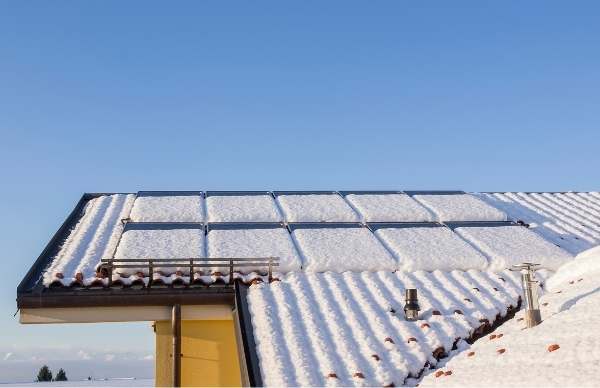
Other Factors That Influence Efficiency
While your average solar panels are going to give you around 20% efficiency as a general rule of thumb, there are a variety of factors that impact your “true” efficiency ratings.
Snow, for example, is going to cut down significantly on efficiency when it starts to accumulate. Once the panels have a small amount of snow built up their efficiency drops to zero!
Wind, hail, and ice can also have a real negative impact on overall efficiencies.
Chemical residue that builds up, UV degradation, thermal cycling, and even just your panels becoming shaded by overgrown trees or dirty between cleanings can bring down your true efficiency ratings, too.
What Can I Do to Increase Solar Panel Efficiency?
In general, keeping the top and bottom of your solar panels clean will maximize the amount of sunlight that reaches the solar cells. Additionally, keep a little space under them so they don’t overheat, which will also cut efficiency.
Luckily though, there are a host of things you can do to increase solar panel efficiency…all without breaking the bank or spending a tremendous amount of time working on your solar system.
- Confirm Installation At The Right Angle
- Leverage A Solar Concentrator
- Maintain Your Solar Panels Properly
- Utilize Battery Backup Systems
- Keep Your Panels Squeaky Clean
Confirm Installation At The Right Angle
For starters, you’ll want to be sure that solar panels have been installed at the right angle.
Solar panels that have been installed to be south facing with the perfect pitch are going to capture the most possible sunshine to convert into electricity.
Pitching is hugely important, not just for capturing the most sunlight throughout the day (all year round) but also to keep the panels clean between scheduled maintenance.
Leverage A Solar Concentrator
Solar concentrators are designed to leverage a system of mirrors or lenses, or a combination of the two, to focus even more sunlight directly onto your solar panels.
Many concentrators are designed to shift and rotate as the sun does, guaranteeing that you are constantly concentrating the most sunlight under the surface of your panels.
Solar concentrators aren’t used very often in residential solar, so their prices tend to be on the steep side. But if you want to squeeze every bit of efficiency from your solar panels and increase your overall output, a solar concentrator is the way to do it.
Maintain Your Solar Panels Properly
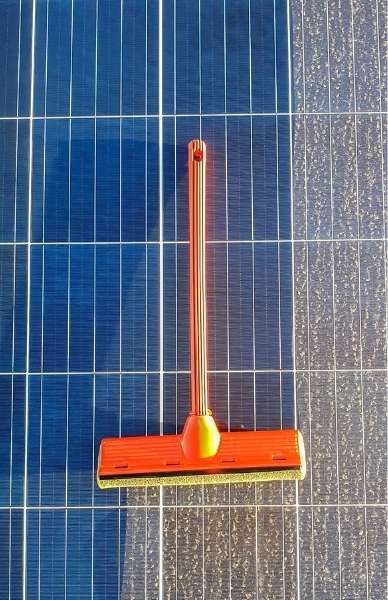
As mentioned before, chemical residue build-up, UV degradation, thermal cycling, and even just regular shade can bring down your
Still, if you want to maximize efficiency no matter what…and really drive up the utility of your solar electric setup…it may be worth looking into this kind of tech.
Utilize Battery Backup Systems
Battery backup systems that allow you to store the energy collected by your solar system and then disperse it “on-demand” can dramatically increase both the efficiency and the utility of your solar setup.
The beauty of a battery backup system is that you’ll be able to enjoy the electricity your solar panels created even in the middle of the night, during overcast days, or when solar production is less than ideal.
More and more people are implementing battery backup systems because of how much sense they make.
Keep Your Panels Squeaky Clean
At the end of the day, one of the easiest things you can do to improve the efficiency of your solar panels is to simply make sure they are squeaky clean all the time.
Every day a little bit of dust is going to build upon your panels.
Before you know it your panels have a film across them that diffuses sunlight – and your efficiency drops like a stone.
Scrub your solar panels every now and again (maybe every three months) can improve your true efficiency ratings by as much as 21% or more.
Final Thoughts
Maintaining your solar panels is one of the best ways to ensure that they are running at peak efficiency. By keeping them clean and free from debris, you can maximize the amount of sunlight that is converted into electricity.
Additionally, there are a number of other ways to increase solar panel efficiency, such as leveraging a solar concentrator or using a battery backup system.

